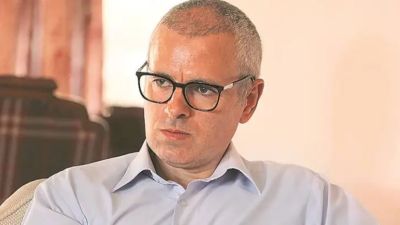On free trade, it’s Indian pot calling Saarc kettle black
In a preview of his approach to the 13th Saarc summit, Prime Minister Singh said today the region must work together to deal with the challe...

In a preview of his approach to the 13th Saarc summit, Prime Minister Singh said today the region must work together to deal with the challenges of terrorism, poverty alleviation and natural disasters.
Delivering the P N Haksar memorial lecture in Chandigarh, Singh said a “perspective of interdependency” must guide the region’s fight against terrorism and poverty. But Singh’s interlocutors in Dhaka might be less receptive to exhortations than the immediate trade concessions that India is prepared to offer.
For all the sense of despair in the South Block at the slow pace of SAARC, India rarely looks into the mirror. While Pakistan and Bangladesh have been cussed on regional economic integration, India must take much of the blame for failing to lead. Despite a market that dwarfs all others in the region, India has not chosen to leverage its size to facilitate greater trade flows within the region. While other regional leaders like Brazil have made a deliberate political decision to provide market access to smaller neighbours and generate trade surpluses in their favour, India has chosen to look the other way. Bangladesh faces the brunt of India’s double standards—out of the official two way trade of nearly a billion U.S. dollars only about 100 mn are Bangla exports to India. When unofficial trade is considered, the gap will be much larger.
Whenever India talks of free trade, its neighbours snigger—friends quietly and others loudly—and point to Delhi’s double standards on trade.
In the multilateral forums including the World Trade Organisation, India thunders against the protectionism of the advanced countries. And in the region, it’s economy is the most protected.
Within the region, India is also the worst offender on non-tariff barriers. Every slogan India mouths against the West in WTO can be thrown back at her with equal veracity at SAARC.
Unlike his previous governments in Delhi, Singh has recognised the hypocrisy of the Indian position as well as India’s own long-term interest in offering market access to neighbours.
Addressing the Trade and Economic Relations Committee in the capital last month, Singh underlined India’s need for a “proactive” and “accommodative policy on regional trade. “Our neighbours must acquire a greater stake in our economic growth by benefiting from it. India must be willing to import more from our neighbours, especially the less-developed economies”, Singh said in a major departure from the traditional policy on regional trade.
Reflecting this new approach from Singh, the government has decided to adopt a more positive approach in resolving the current problems which are holding up the negotiations on the South Asian Free Trade Area at Dhaka.
While the Foreign Office sees the importance of trade as strategy in the Subcontinent, there is resistance across the board from various ministries—from textiles to agriculture—on opening India’s market to the neighbours.





- 01
- 02
- 03
- 04
- 05


























